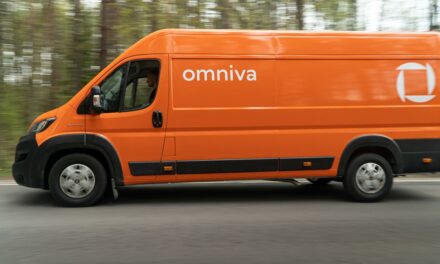
A setback for the forces of verbal barbarity: Consignia's chief spills the beans
We tend to get emotional about names. That is why I could be found jumping around my desk this morning saying "Thank you, thank you, Allan Leighton" for publicly acknowledging what most of the country has been saying for months: Consignia, the new name for the Post Office, is a disaster.
Since Mr Leighton is Consignia's new chairman, his statement took some courage. I hope it marks a turning point in the power of the brand consultants, under whose baleful influence British company names have been changing into a jumble of the pretentious, meaningless or absurd.
Of course, companies do need to find new names for themselves from time to time. The industries in which they operate can get so far removed from their origins that the old names looks silly. And businesses demerged from their parents – such as BT's wireless operations last year – have to create an identity from scratch.
Nor is there anything necessarily wrong with a neologism, though it will take time for it to build an identity. Asda, a previous employer of Mr Leighton, has a fine, crisp moniker.
So corporate names should not be preserved in aspic. But they should be treated with respect and the Consignia rebranding fails on two counts. First, it is not a very good name, as I will explain below.
Second, the Post Office already had a perfectly good name. It described accurately what it did; it was the second best-known brand in Britain; and, despite the organisation's poor labour relations and delivery record, it retains enormous goodwill (of the real, rather than accounting variety) among the public.
Mr Leighton puts his finger on the key point when he says "there is a lot of history here that needn't have been changed".
He clearly disagrees with John Roberts, Consignia's chief executive, who argues that the new name can help give the Post Office a fresh start. But what Consignia needs is fundamental change in management and labour practices, of the kind Mr Roberts may not be able to deliver, rather than vain hope that verbal cosmetics will do the trick. An unreformed Post Office by any other name would still smell as bad.
Still, if a company really must change its name, what principles should it adopt? Here is my list of six essentials, offered for the mere price of an FT – a bargain compared to the millions the brand consultants will charge:
1. Don't dump your history. It is part of your corporate culture and your public identity. If a name is no longer appropriate, consider abbreviating it, or see if you can pull a more appropriate one out of your historical locker.
BTR was a good substitute for the outdated Birmingham Tyre and Rubber, and it was an act of verbal vandalism for the company to drop this in favour of the awful Invensys. Marconi, with its historic resonance, was a good name for the telecoms rump of GEC, albeit tarnished by recent events.
2. Choose the name of something concrete rather than abstract. Kingfisher is not bad. Orange, helped by a clever marketing campaign, has proved brilliant. Contrast these with telecoms group Thus, which sounds like a fragment of a portentous Nietzschean philosophical concept from Thus Spoke Zarathustra.
3. Try and link the name to your activities. Bass has been derided by traditionalists for changing its name to Six Continents, but it is an excellent name for a global hotels group. And Lastminute.com is one of the most memorable names to emerge from the internet.
4. Avoid names hard to pronounce clearly and quickly. This applies to MMO, the new name for BT Wireless. Say the four syllables out loud and it sounds like a garbled Tibetan prayer chant. One august City institution calls it "Moo".
5. Avoid the pretentious. MMOagain provides a lesson in what not to do. The name, we are told, incorporates the symbol for oxygen because it is necessary for life. With its weak market share, this clearly does not apply to the company.
6. Avoid cod Latin and Greek neologisms like Consignia, Innogy, Energis, Diageo and, yes, Invensys. They do not conjure up any clear image and are easy to confuse: could you tell an Innogy from an Energis? They also tend to give companies a rather temporary, fly-by-night character – like the brittle names given to car models that will be found rusting on scrap heaps in 10 years' time, or energy trading companies that collapse in accounting scandals.
All this means there is tough competition to be top of the schlocks. My vote goes to MMO, just ahead of Innogy and Invensys. All were coined in the past three years. The forces of lexical barbarism are advancing. Let's hope Allan Leighton stops the rot.
Still, we must remember that how a company performs is far more important than the name attached to it.
In 1924 a London market trader called Jack Cohen needed to find a brand name in a hurry for a tea he wanted to start buying from a certain TE Stockwell, an importer. He took Stockwell's initials and the first two letters of his own surname. Result: Tesco. Daft name. Great company. [email protected]












